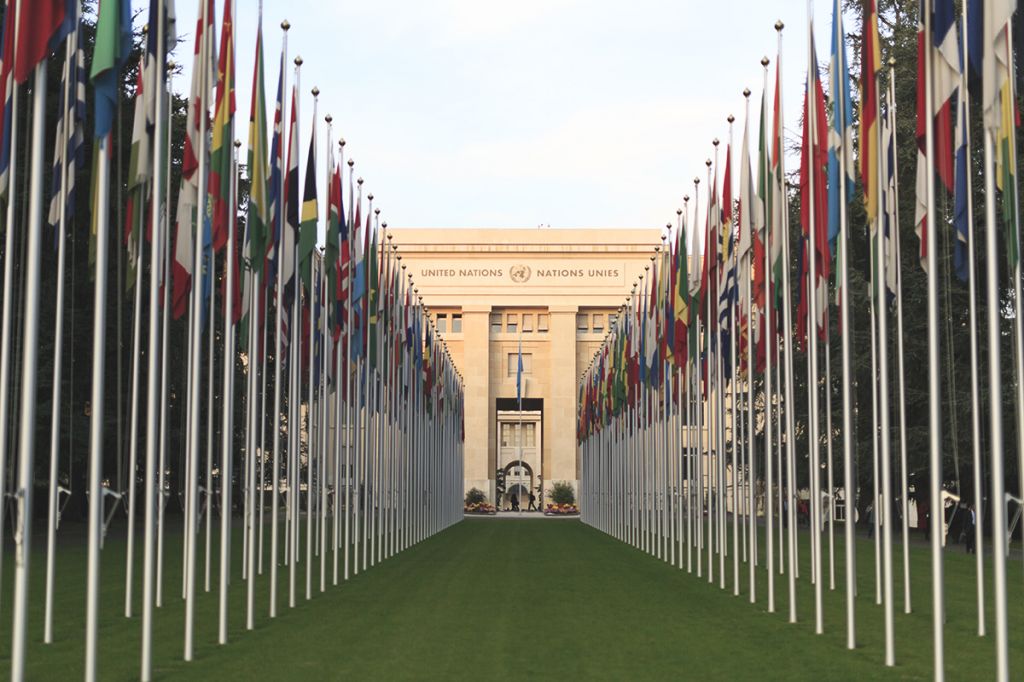The essay draws on HRHN’s first-hand experience addressing human rights within the UN system, and combines this with on-the-ground reporting by civil society organisations within the Human Rights House Network, specifically in Armenia, Azerbaijan, Belarus, the Russian Federation, and Ukraine.
Less than a month before the United Nations Human Rights Council opens for its first session in 2016, on its 10th anniversary, Florian Irminger observes: “The UN Human Rights Council is entrusted to universally promote and protect human rights, but events in European countries in recent years have called into question the universal nature and effectiveness of the HRC, specifically its motivation and ability to address human rights in Europe. For example, the UN has been inaudible in its reaction to Russia’s clampdown on civil society, media, and opposition, and it failed to react effectively to Euromaidan in Ukraine and other rapid developments in Eastern Europe.”
After detailing cases of how the UN has responded to events in Belarus and Ukraine, Florian Irminger comments: “These examples illustrate the difficulty of raising human rights violations at the political level within the UN when they concern a European country, and demonstrate the lack of willingness from many sides – the UN itself, European States, and States from other regions – to put human rights violations occurring in Europe on the agenda of the UN.”
Florian Irminger also covers the lack of UN engagement at national level: “Our experience is also that the United Nations itself, in various countries, does not push for human rights issues to be raised. It can be even a force against the promotion of human rights on the ground… For example, for Belarus’s second review at the Universal Periodic Review (UPR), the Office of the UN Resident Coordinator in Belarus organised training for civil society, but invited only NGOs legally registered in Belarus… This de facto excluded international actors working on Belarus – when international engagement is essential in such a closed country – as well as domestic NGOs who are banned from public life by Belarusian legislation.”
Florian Irminger then examines states’ engagement with UN special procedures. He observes: “European States tend to take one of three approaches to special procedures: they reject, they pretend to collaborate, or they truly collaborate.”
Florian Irminger concludes: “Space for civil society in some European countries is shrinking and the environment is increasingly dangerous for human rights defenders. This is not helped by the poisonous combination of the UN not expecting enough when it comes to civil and political rights from European countries, European countries not receiving enough attention from special procedures, and European countries not doing enough to raise developments in other European countries at the UN.”
HRHN’s contribution is entitled “To ensure its universality, the United Nations must address the increasingly worrying situation of human rights defenders in Eastern Europe.” You can read the full essay by clicking the link at the right-hand side of this page.
The essay is part of the Foreign Policy Centre report “Institutionally blind? International Organisations and Human Rights Abuses in the Former Soviet Union,” published on 9 February 2016. The report includes other essays from academics, civil society leaders, and politicians, and is part of the Foreign Policy Centre’s wider Exporting Repression project.
Documents:
- The UN must address the increasingly worrying situation of human rights defenders in Eastern Europe
Examines the UN’s effectiveness in promoting and protecting civil and political rights in Europe, considering the UN’s inconsistent approach in addressing human rights degradations and how independent voices and UN rapporteurs have struggled to engage with governments in the region.





